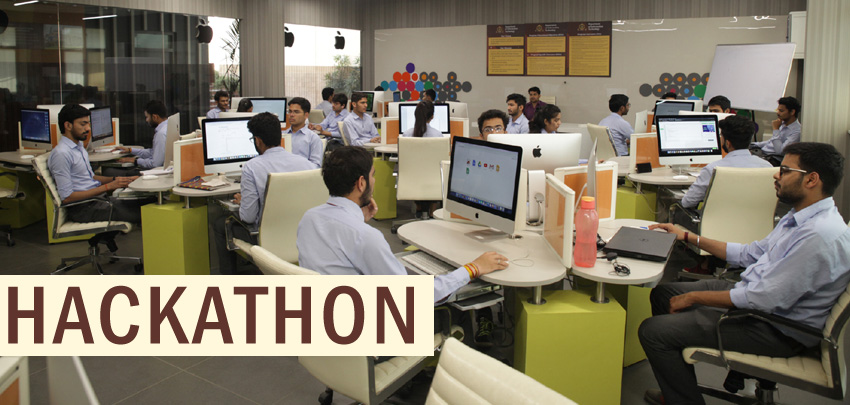In the ever-evolving world of technology and innovation, Hackathons have emerged as a powerful force for creativity, collaboration, and problem-solving. These intensive, time-bound events bring together diverse minds to develop innovative solutions, applications, and prototypes.
A hackathon is a collaborative event that brings together individuals with various skill sets, such as programmers, designers, and domain experts, to work together on specific challenges or projects. The term “hackathon” is a combination of “hack” and “marathon,” signifying the fast-paced, time-bound nature of these events.
Participants usually form teams and have a limited time, often ranging from a few hours to a couple of days, to develop functional solutions to the given problem. The goal is to foster rapid innovation and encourage out-of-the-box thinking. Hackathons can focus on various themes, including social issues, technological advancements, industry-specific challenges, or humanitarian causes.
The Use and Purpose of Hackathons
- Innovation: Hackathons are hotbeds for innovation, encouraging participants to push boundaries and explore new technologies, methodologies, and ideas. The competitive yet collaborative atmosphere sparks creativity, leading to novel solutions that might not have emerged through conventional channels.
- Skill Development: Participants gain valuable experience and skill development during hackathons. They learn to work under pressure, collaborate with diverse teams, and apply theoretical knowledge to practical situations. Such events nurture technical and soft skills, making participants more adaptable and industry-ready.
- Problem-Solving: Organizations and industries use hackathons to tackle real-world problems and challenges. By tapping into a diverse pool of talent and perspectives, they can identify unique and viable solutions that might lead to improvements in processes, products, or services.
- Networking and Collaboration: Hackathons create an environment where like-minded individuals can network, share ideas, and potentially form lasting partnerships. Participants often collaborate beyond the event, continuing their work on promising projects or startups.
- Recruitment and Talent Acquisition: For companies and startups, hackathons serve as talent hubs. Observing participants’ performance during the event can be an effective way to identify potential candidates for internships or full-time positions.
The future of hackathons looks incredibly promising, and they are likely to remain a prominent fixture in the innovation landscape for several reasons:
- Continuous Technological Advancements: As technology continues to evolve at a rapid pace, hackathons will keep serving as testing grounds for cutting-edge tools, platforms, and methodologies.
- Remote and Hybrid Models: The global pandemic accelerated the adoption of remote work and virtual collaboration. Hackathons have also embraced remote and hybrid formats, enabling participation from individuals worldwide and increasing inclusivity.
- Cross-Industry Collaboration: Hackathons that bring together participants from various industries foster cross-pollination of ideas and encourage innovation that transcends traditional sector boundaries.
- Startups and Entrepreneurship: Hackathons can be a Launchpad for new startups, enabling entrepreneurs to test their ideas, attract investors, and gain early traction.
The Indian government has recognized the potential of hackathons in driving innovation and addressing societal challenges. By promoting and participating in hackathons, the government aims to achieve the following:
- Digital India Initiative: As part of the Digital India campaign, hackathons play a crucial role in encouraging citizens to engage with technology and contribute to the country’s digital transformation.
- Startups and Entrepreneurship: The government supports hackathons to foster an entrepreneurial ecosystem, where young minds can ideate, innovate, and create scalable solutions.
- Solving Societal Issues: By organizing hackathons around social challenges, the government seeks to harness the power of technology and young minds to find solutions for healthcare, education, agriculture, and more.
- Skilling and Employment: Hackathons provide a platform for skill development, enabling participants to upskill and improve their employability.
Along the same line, the Government of India has launched KAVACH 2023, a 36-hour non-stop Hackathon along with the Ministry of Education, the Ministry of Home Affairs, Innovation Cell-MIC, the Indian Cyber Crime Coordination Centre, and the Bureau of Police Research and Development. GL Bajaj Institute of Technology and Management, one of the leading institutes in Greater Noida has been selected as one of the 5 nodal centers across India to host the grand finale of KAVACH 2023.
In conclusion, hackathons have emerged as powerful engines of innovation and problem-solving. They bring together diverse talent, encourage creative thinking, and have a profound impact on industries, communities, and society as a whole. As we move forward, hackathons will continue to shape the future of technology and play a pivotal role in driving positive change in the world. The Indian government’s support for hackathons underscores their significance in building a stronger, more innovative nation.
